Hoping to see the best headphone brands explained, or just have an idea which one is best for you? You’ve come to the right place!
Today, I’ll be breaking down everything you need to know about the best headphone brands, including what sets them apart from the rest and how to actually pick a good pair of headphones from them.
Let’s not waste time, and dive right into it!
TABLE OF CONTENTS
What Makes a Headphone Brand Good?
Established Audio Industry Pedigree
One of the most important things I consider when making lists like this is finding the brands that are most reputable in their category.
Unfortunately, audio is one of those areas that are dominated by either a bunch of cheap brands with very poor quality or “audiophile” brands that charge literal thousands for no real improvement over a solid ~$200-$300 pair of open backs.
For this list, I was careful to avoid brands that don’t treat high quality audio as a main or dominant focus.
I also vetted (nearly) all of my picks with friends I have in professional audio, since we here at CGDirector like to target a prosumer audience.
While not all of you reading will necessarily be “pros”, that’s no reason not to go with brands that actually know how to produce good sound, right?
Good Warranty and Return Policy
Another important thing for assessing the best headphone brands— or really, the best brands in any category— is warranty policy!
While you obviously don’t want to end up in a situation where you need to use your warranty, it’s generally good to buy headphones with a solid warranty and return policy in case you do need to make an unexpected return.
With this in mind, I’ll be listing information on the warranty provided by each of the headphone brands listed below.
This should help add some purchasing confidence, since it doubles as a reading of how confident the manufacturers are that nothing will go wrong in their present span of time.
Lineup Variety and/or Pricing
Finally, I think the best headphone brands should be set apart by exceptional lineup variety, pricing, or both!
While many of the pro-oriented brands listed below won’t necessarily have the most consumer-friendly pricing (particularly for the pro or audiophile-oriented gear), I was still careful to avoid any brands that flagrantly overcharge for the quality and features on offer.
Lineup variety will…vary, of course. More on that in each brand’s given section. For now, just know that I mainly mean variety in form factor and appearance, since headphones are hardly a one-size-fits-all experience.
What Makes Headphones Good?
Headphone Form Factor Suited To Your Needs
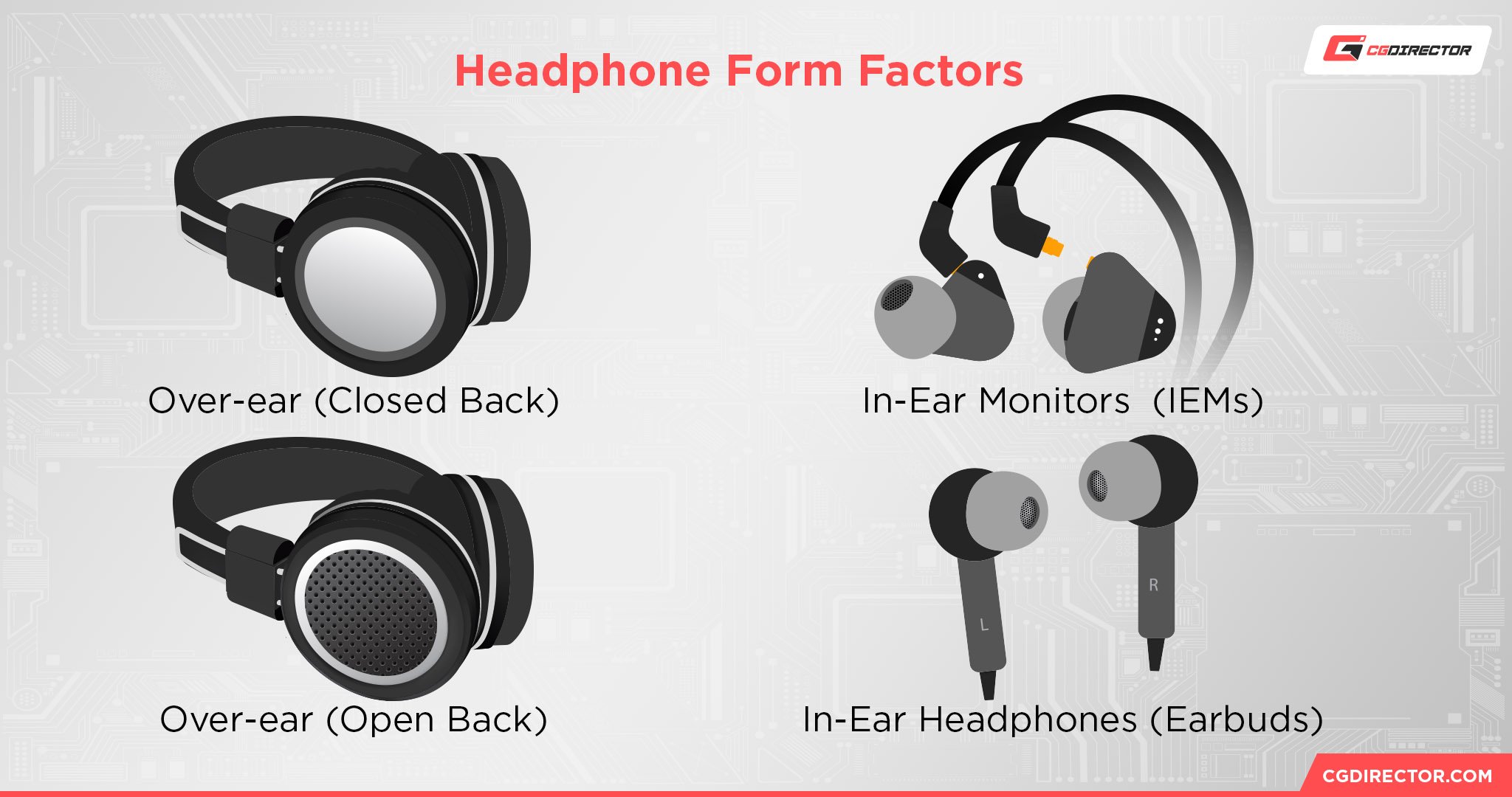
Before you pick any set of headphones, be sure that you understand the basic differences between the four dominant headphone form factors listed below:
- Over-Ear, Closed Back Headphones — Over-ear headphones with a closed back will have “passive” noise canceling by sealing away outside noise. (More on “active” noise canceling later.) These provide an ideal experience for immersion and focus, but have a limited “soundstage”.
- Over-Ear, Open Back Headphones — Over-ear headphones with an open back have no noise canceling properties, since you have close-to-unfiltered hearing of the outside world around you. However, this effect also allows for a more immersive “soundstage” effect that is favored by audiophiles and audio professionals alike, making them an ideal choice as long as you have a quiet listening environment.
- In-Ear Headphones (Earbuds) — Common earbuds or in-ear headphones are cheap, convenient, and rest on your outer ear. However, they also only have a single driver per-ear, and often lose a lot in overall frequency coverage, bass, and accuracy as a result.
- In-Ear Monitors (IEMs) — In-ear monitors (IEMs) look similar to earbuds, but actually go inside your ears and on the pro-level, boast multiple drivers per-ear. This allows for incredibly accurate and immersive sound, and it makes IEMs particularly common for use by audio engineers and musicians mid-mix or mid-performance.

Good Frequency Range and Response
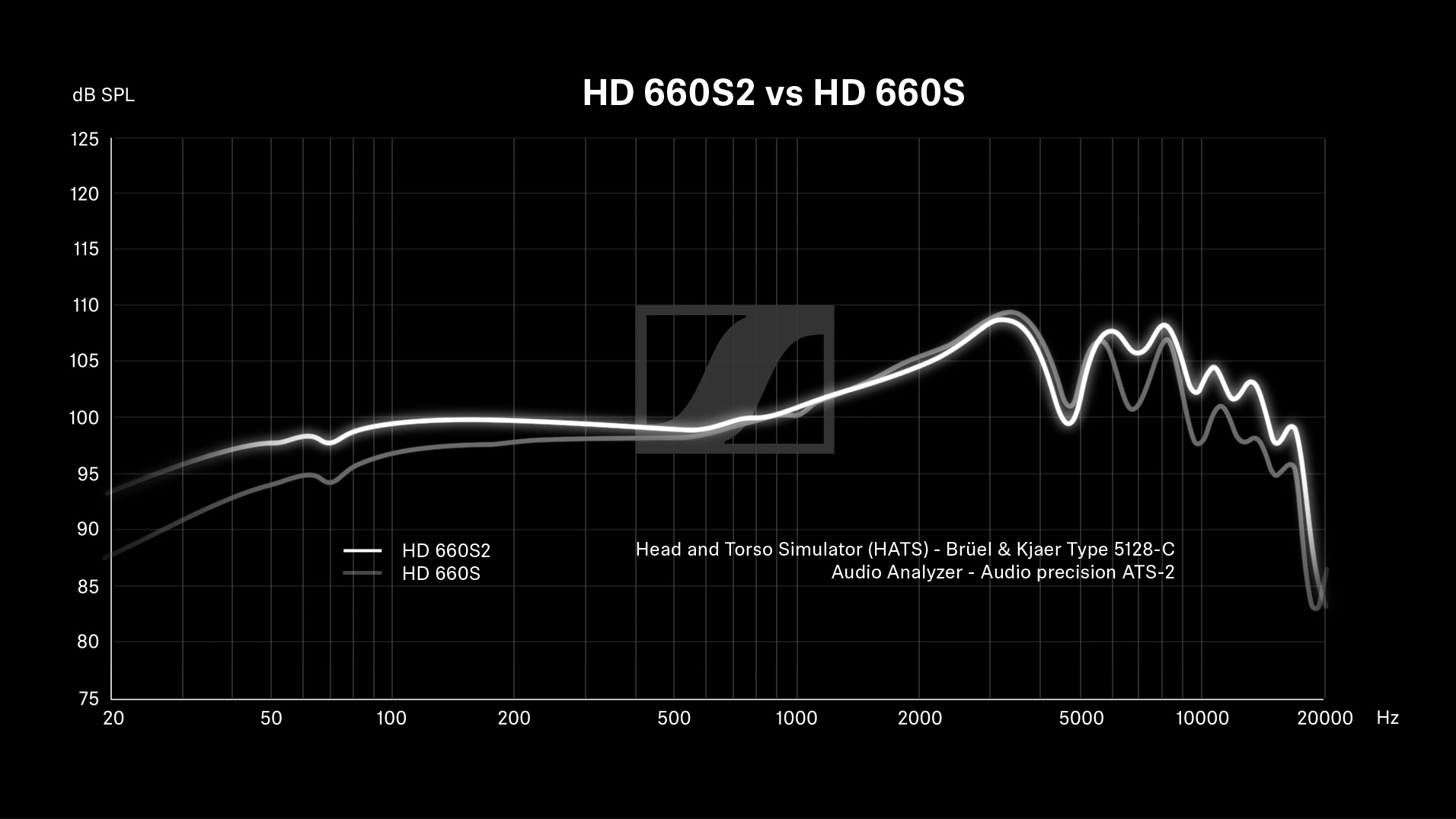
Image Credit: Sennheiser
Frequency range and frequency response are the two specifications that correspond most directly to sound quality for a given set of headphones, or other audio device.
Frequency range refers to the range of sounds that the headphones can play back, while frequency response determines the accuracy/strength at which those sounds are played at different frequencies. Ideally, you want wide coverage with a balanced frequency response.
Finding this information for a given pair of headphones can be difficult without very detailed specifications from the manufacturer, though.
While I’ve embedded a graphic from Sennheiser above showing off these specifications for their HD 660S2 over the HD 660S, not all headphones are so forthcoming with this information.
I recommend sources like the Audio Science Review forums if you want to find detailed frequency info for a given set of headphones or speakers.
Sturdy Build Quality
The last thing you want is to get some headphones that are likely to fall apart on you quickly. Unfortunately, headphones literally falling apart is very common in the $100 and under price range, which I can attest to from experience.
And while there are some durable cheap headphones out there, they also tend to make severe compromises in quality or accuracy in turn, which makes them not ideal for a prosumer-oriented guide like this one.
The best way to gauge a given pair of headphones’ build quality will usually be to look at reviews.
Reviews will very quickly iron out how long-lasting the headphones you’re buying actually are, if the included wiring or padding is uncomfortable, and so on.
That may seem like a bit of a cop-out, but it really is an important step of buying tech online, in general. Other people’s experiences can be valuable information!
Overall, I feel comfortable saying that my pro-oriented picks below should all offer suitable build quality, especially at mid-range ($250-$800) pricing and higher. It’s still worth double-checking before making any buying decisions, though.
In-Ear Monitors over Earbuds
As alluded to above, you’ll be better served with IEMs over earbuds if you prefer in-ear headphones to over-ear headphones.
Specifically, getting pro-grade IEMs is a great way to have a truly premium audio experience without worrying about sacrificing comfort or adding extra weight to your head like you have to with traditional headphones. IEMs are even used by the musicians you’ll be listening to them with!
Wired Is Ideal Over Wireless, If Possible
If you simply need wireless headphones and there’s no way to convince you otherwise, I won’t bother. But—
I seriously, seriously recommend getting wired headphones if at all possible. Wireless headphones deal with reduced sound quality due to Bluetooth not having support for lossless audio, and trend heavier in general than wired headphones do.
They’re more expensive for worse audio quality (thanks, Bluetooth!) and worse comfort, which isn’t an equation I think anybody should accept uncritically.
I’m not the only person who thinks this, either.
The professionals I spoke to writing this article also warned against wireless headphones (though some of the brands listed below do provide them), and Lee Dunkley at Tom’s Guide also wrote a dedicated Anti-Wireless Headphones article that goes into more detail than I will here.
Best Headphone Brands Explained
Sennheiser
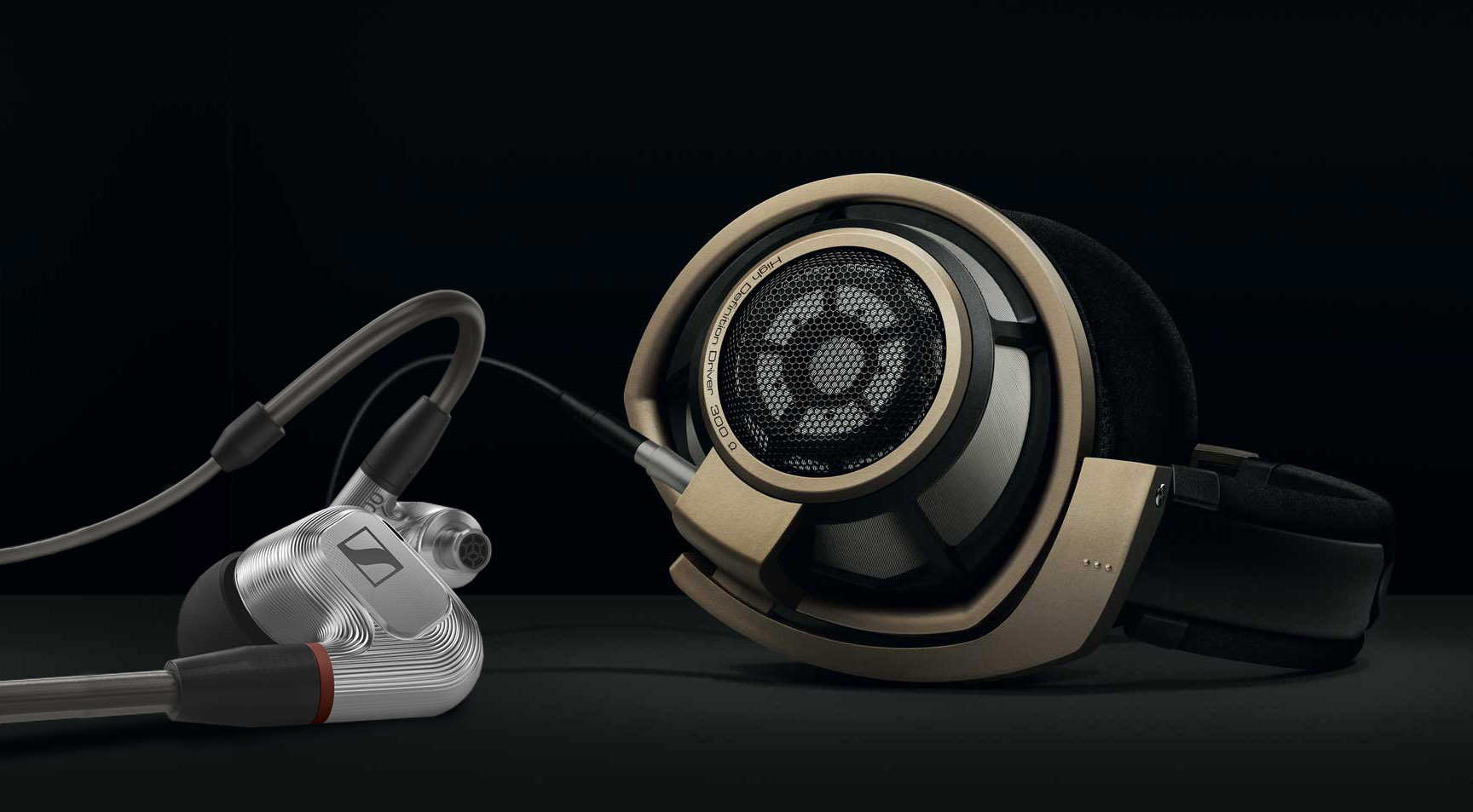
Source: Sennheiser
- Established Since: 1945*, 1958 rename to Sennheiser and entry to audio
- Known For: Consumer Headphones, Studio Headphones, Closed-Back Headphones, Open-Back Headphones, In-Ear Monitors, Earbuds
- Warranty: 2 Years Sennheiser Branding, 10 Years Wired Evolution Branding
Sennheiser is easily one of the most well-known and highly-regarded audio brands in the world, and they’ve maintained that reputation long enough for their inclusion here to be a no-brainer.
Sennheiser is known for providing a wide variety of headphones for consumers and professionals alike, with their professional/audiophile-oriented offerings being quite highly-praised. They even offer IEMs!
While the mid-range and high-end Sennheiser headphones will cost a pretty penny, you can pretty much rest assured that you’re getting a good set of headphones from Sennheiser when you buy them.
I would just recommend not getting their gaming headsets (or headsets in general, from anybody), since those do kind of suck. Nobody’s perfect.
Audio-Technica
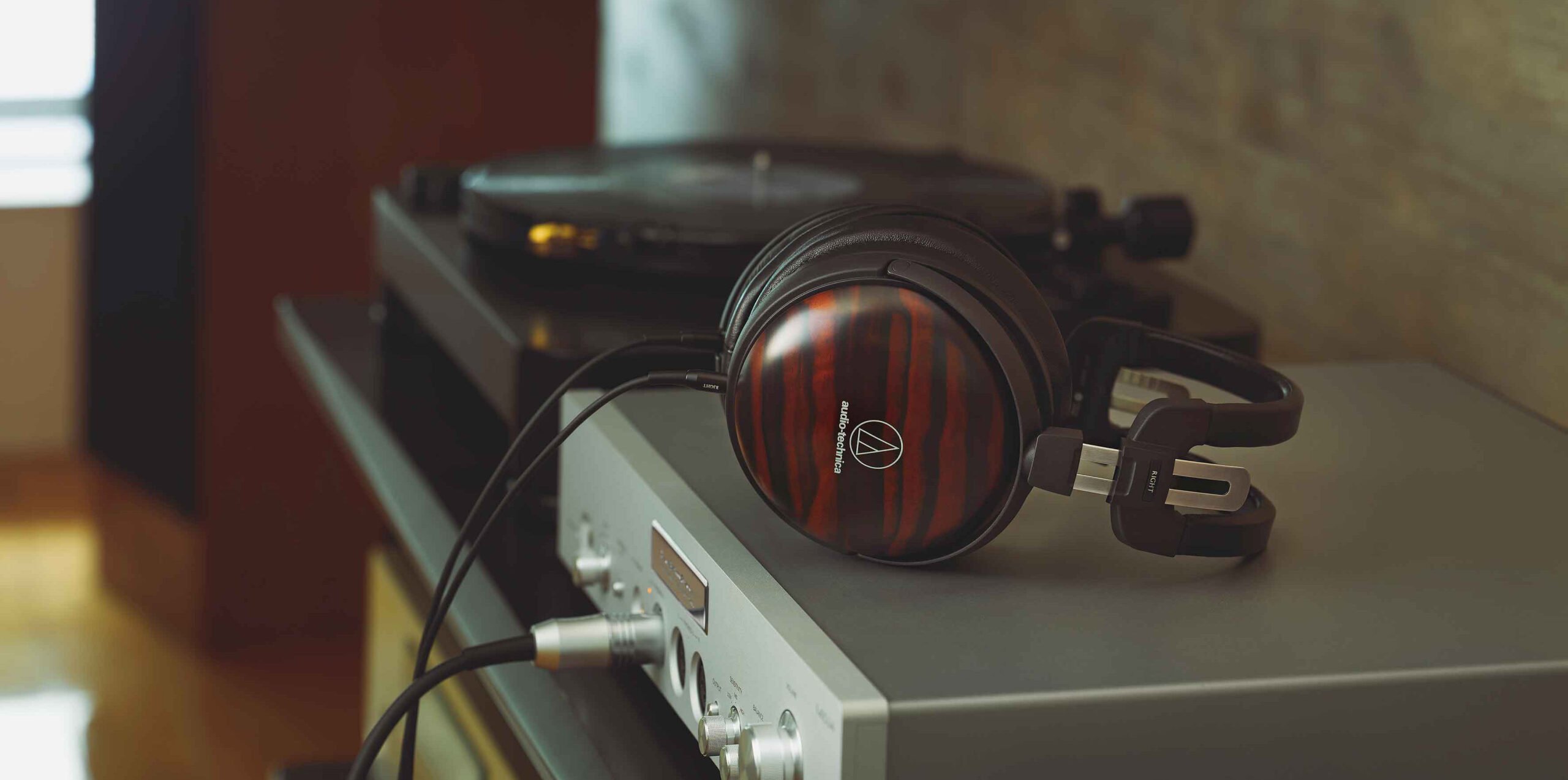
Source: Audio Technica
- Established Since: 1962
- Known For: Consumer Headphones, Studio Headphones, Closed-Back Headphones, Open-Back Headphones, Earbuds, Noise-Canceling Headphones,
- Warranty: 1-2 Years Depending on Headphones
Another well-known, highly-regarded audio brand is Audio-Technica. Audio-Technica has long been known as a provider of both consumer and audiophile-oriented headphones. Like Sennheiser, AT is capable of running pretty much the full gamut of headphone form factors and price ranges. Being in the industry since the ‘60s allows for that kind of flexing.
Compared to Sennheiser, AT also seems to start its entry-level offerings a little cheaper, and offers more in the way of wireless headphones. By contrast, though, they also offer warranties as short as a single year, compared to Sennheiser’s minimum of 2 years, which can be a little off putting.
Considering AT’s track record, though, you’re unlikely to encounter any extreme issues outside of that warranty window.
AKG
- Established Since: 1947
- Known For: Studio Headphones, Consumer Headphones, Closed-Back Headphones, Open-Back Headphones, Earbuds, Noise-Canceling Headphones,
- Warranty: 3 Year Warranty Standard, Lifetime on Select Models
AKG is one of the oldest and most influential audio brands on this list. Outside of headphones, they’re most well-known for giving the world the first-ever dynamic cardioid microphone, which made them an instant hit in studios around the world.
Their parent company, Harman, is also responsible for establishing the standard on frequency response curves for headphones, which makes them particularly influential in this niche of audio hardware, too.
On top of their pedigree and wide arrangement of offerings, AKG also sticks out for their fairly strong warranty policies.
A standard 3 Year Warranty speaks to very high confidence in their product reliability and durability, and that’s always nice to see when you’re making premium tech purchases like these. And of course, the Lifetime Warranty for their ultra-premium models is very nice to see.
Beyerdynamic
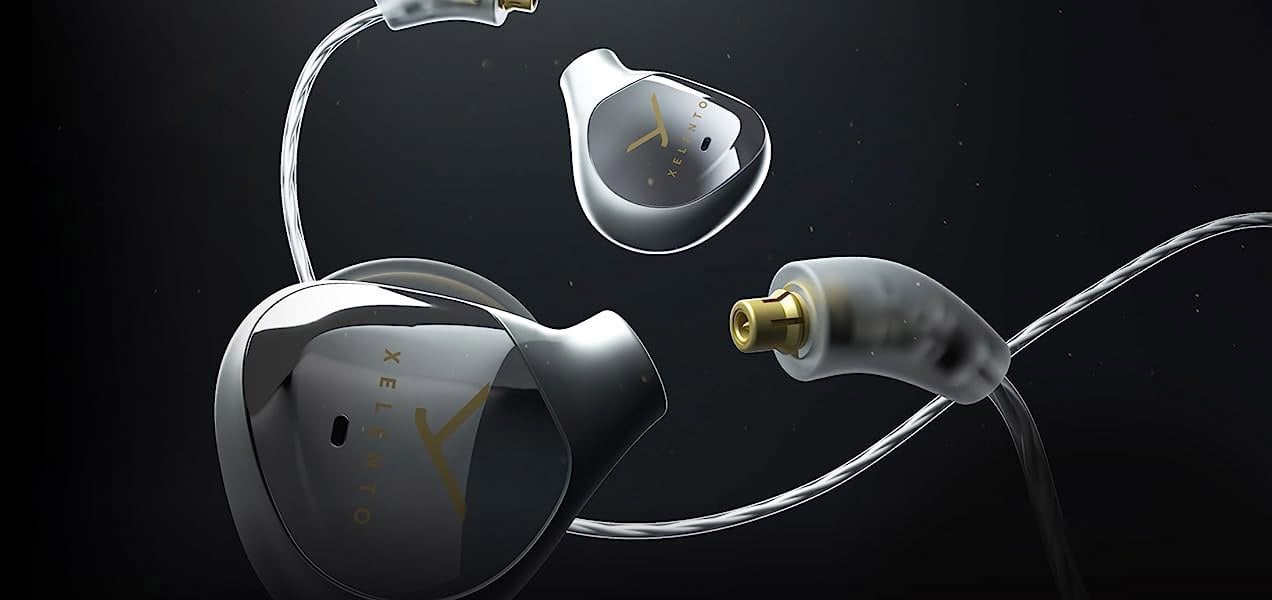
Source: Beyerdynamics
- Established Since: 1924
- Known For: Studio Headphones, Consumer Headphones, Closed-Back Headphones, Open-Back Headphones, Earbuds, Noise-Canceling Headphones,
- Warranty: 2 Years
Beyerdynamic is yet another older name in audio that’s mostly targeted toward a mid-range studio audience, but also has some decent entry-level offerings.
They even offer worthwhile gaming headphones, which is a very rare compliment considering how few headphones with that moniker attached (even from otherwise-reputable brands like Sennheiser) are actually good.
In terms of warranty policy, Beyerdynamic also trends positively by providing a universal 2 year warranty for all of its headphones from the day of purchase.
Compared to the stinginess shown by premium headphone providers only offering 1 Year Warranty on some models (coughcoughAudioTechnicia), it’s pretty nice that Beyerdynamic is willing to put some real confidence behind its headphones beyond the bare minimum.
Shure
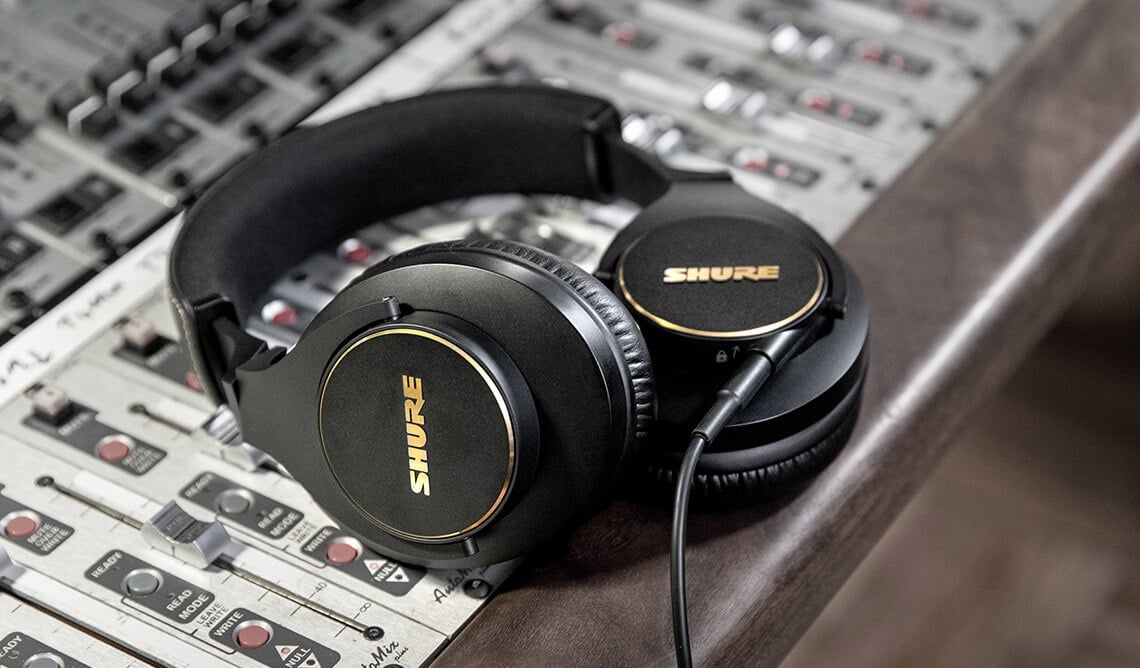
Source: Shure
- Established Since: 1925
- Known For: Studio Headphones, Consumer Headphones, Closed-Back Headphones, Open-Back Headphones, In-Ear Monitors, Earbuds
- Warranty: 1-2 Years Depending on Product
Shure is an older company on this list, but are actually most well-known for getting their start making audio equipment for military use.
To those familiar with military-adjacent hardware, you probably know that those use cases require some pretty high-durability items, and Shure maintains a commitment to high-durability hardware with its headphones today.
If you’re looking for a high-durability, high-comfort set of headphones that can still turn around good sound quality, Shure is a pretty good place to start.
They’ve been doing it for a pretty long time, too! Unfortunately, the Warranty policy on their site trends more toward AT’s “Just Okay” than AKG’s “Excellent”, which sticks out in the face of their durability appeal.
Austrian Audio
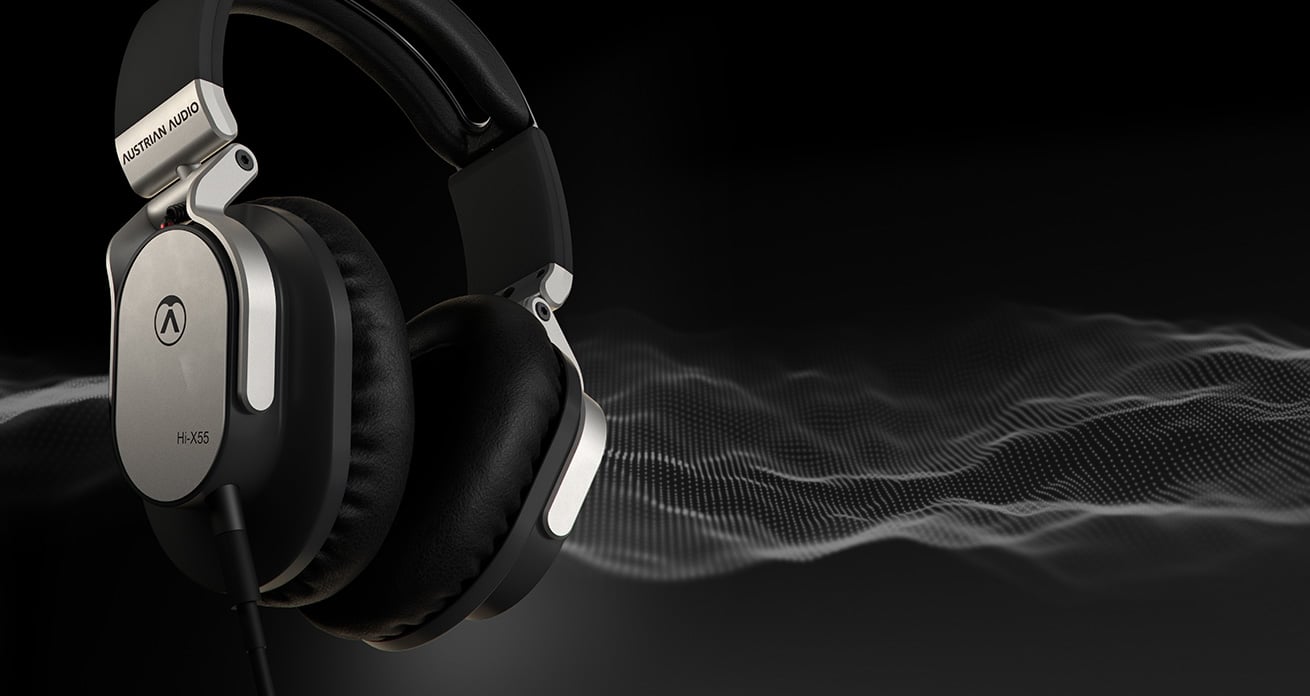
Source: Austrian Audio
- Established Since: 2017
- Known For: Studio Headphones, Closed-Back Headphones, Open-Back Headphones
- Warranty: 2 Years
In contrast to Shure, Austrian Audio is the youngest company on this list, yet still boldly targets a professional studio audience almost exclusively.
The reason why becomes clear when you learn that Austrian Audio is actually based on the work of former AKG engineers, who left the company and decided to compete with their own headphones! That’s spicy, if you ask me.
Unlike other manufacturers that dabble a little too much in the entry-range with too-major compromises (including earbuds instead of IEMs), Austrian Audio is solely focused on providing over-ear headphones with great sound and build quality.
They’re also known for providing some very good microphones, despite their young age in the industry.
And finally, while their warranty policy isn’t quite as solid as AKG’s 3 Years, they’re still much closer to the ideal by making 2 Years the minimum.
Compared to other companies starting (and sometimes ending) at 1 Year, Austrian Audio is doing a good job with its universal warranty policy.
Avantone Pro
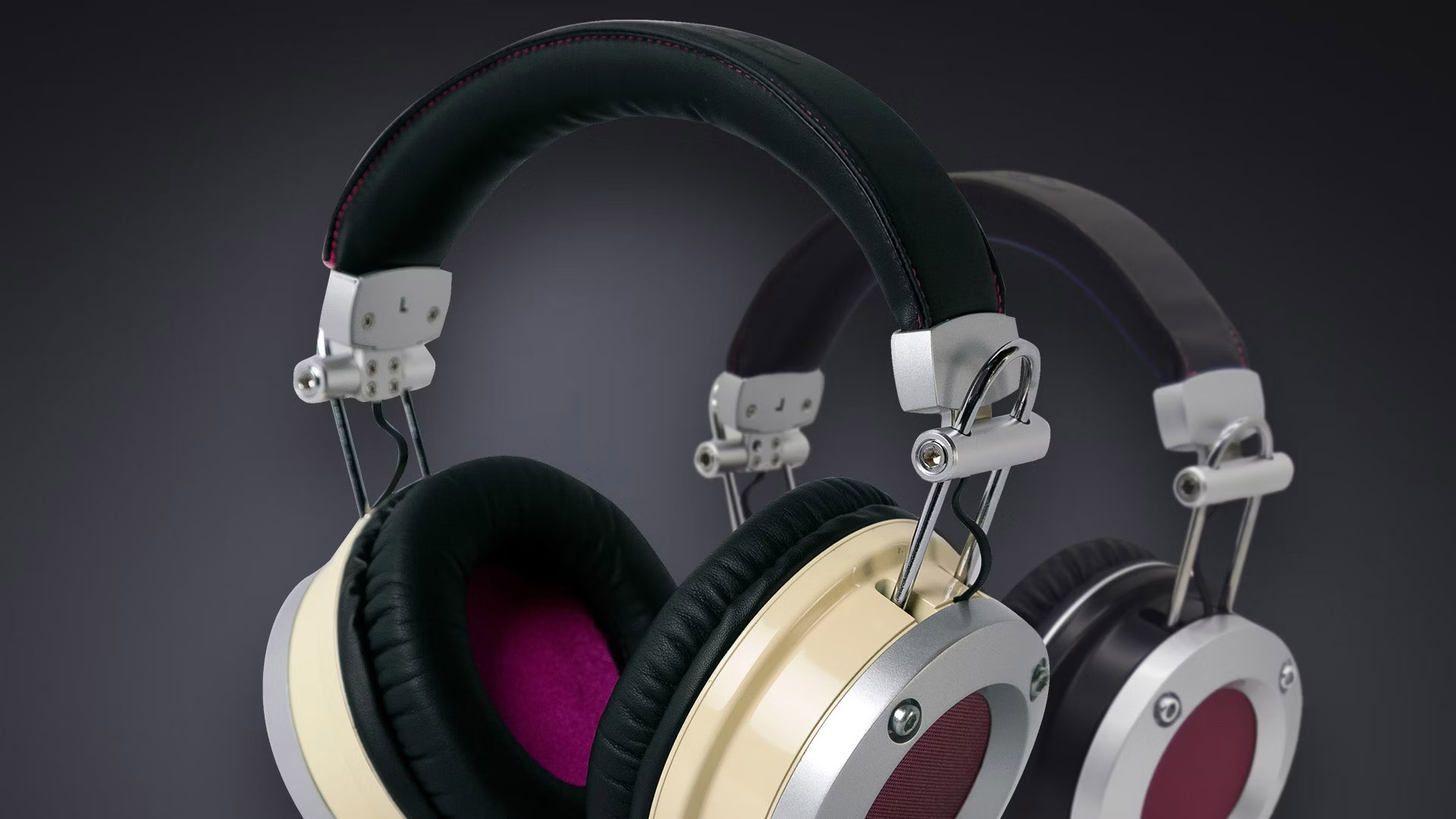
Source: Avantone Pro
- Established Since: 2003
- Known For: Studio Headphones, Planar Headphones, Closed-Back Headphones, Open-Back Headphones
- Warranty: 5 Years
Last but not least, Avantone Pro is another pro-centric audio company. Compared to other headphone companies, Avantone is also the most notable producer of “planar headphones”, which are basically headphones that behave like detached speakers floating just outside of your ear.
If you’ve seen the Valve Index, those headphones are also planar headphones.
And, as a bonus surprise, it turns out Avantone Pro has the best warranty policy of any headphone provider on this list unless you get one of AKG’s lifetime warranty models.
A 5 Year Warranty speaks to immeasurable confidence in the product, which is alway something I love to see in a prosumer-geared space, especially from a vendor like this one.
Picking The Right Headphone Brand For You
While I wrote as much as I could to help point you in a good direction earlier, I understand if you still aren’t sure which manufacturer best suits your needs.
Below, I’ve broken down my recommendations into two main categories to start with: Budget and Pro/Audiophile.
Many brands provide options to both categories, but I’d recommend Budget users stick to the 3 recommended for the best experience with their audio on a sub-$200 budget.
And, of course, I recommend sticking to Mid-Range offerings above $200 (sometimes well above) if you’re buying as a Pro or an Audiophile.
- Headphone Brands For Budget Users* — AKG, Audio-Technica, Sennheiser, Shure
- Headphone Brands For Audio Professionals and Audiophiles — Sennheiser, AKG, Audio-Technica, Shure, Avantone, Audio-Technica, Austrian Audio
*Honorable Mention: Behringer also makes pretty good budget headphones, though they’re highlighted in our audio interface brands article instead.
FAQ
Which headphones are better, in ear or over ear?
It depends, but in most cases, the combination of over-ear, open back headphones are considered to provide the best overall listening experience.
Open back headphones don’t block external noise, but get to set a more realistic “soundstage” in return for their open design.
In-ear headphones can be good…but mainly if they’re proper, pro-level in-ear monitors (IEMs) with multiple drivers within.
Professional in-ear monitors may look similar to run-of-the-mill earbuds, but actually sound significantly clearer, and are commonly used by actual musicians during performances.
Run-of-the-mill earbuds with only a single driver per-ear are generally considered to provide the worst overall listening experience.
Which headphones do not hurt your ears?
Earbuds and IEMs are typically considered more comfortable than over-ear headphones, but truthfully, you can find plenty of comfortable over-ear headphones, particularly from the brands listed above.
I’ve had the most comfortable listening experiences with Sennheiser and Grado headphones, myself.
How much should I pay for good headphones?
The answer will depend on you, but generally it’s accepted that the really good-sounding headphones start around ~$150+.
Headphones under $100 can be perfectly listenable, especially if you like a lot of bass, but aren’t going to be particularly accurate.
If accuracy is what you’re looking for, the mid-range of headphones that goes from $250-$800 is where you want to be shopping the most.
High-end headphones past that point can be pretty good too, but as one can imagine, you’re seeing a lot of diminishing returns by then.
One of my pro audio friends consulted for this article even said that many audiophile products over $800 more or less boil down to snake oil, which is an assessment I agree with.
Is it OK to buy cheap headphones?
As long as you have some understanding of the compromises that come with them, sure. It’s obviously not ideal for reasons explained above, but not everyone can afford $100 headphones, much less the $200 and up recommended for the best experience.
If you must buy cheap headphones, I’d recommend at least sticking with the brands I’ve given you above.
While their cheaper consumer offerings won’t be as good as their pro audio equipment, they’ll still be better than whatever cheap or generic headphones you could be grabbing for a quick buck in their place.
Are noise-canceling headphones worth buying?
If you really need noise-canceling functionality for travel or something, sure. You don’t even necessarily need to be listening to music to put noise-canceling functionality to work.
However, I have to firmly recommend against noise-canceling headphones if you want to preserve your actual music listening experience. Noise-canceling headphones inherently compromise the music listening experience due to how the functionality works.
I find that I prefer closed-back headphones without noise canceling if I want a more “contained” listening experience.
Even with my cheap Anker SoundCore Life Q20 headphones, I find that disabling noise canceling provides a way better listening experience next to busy traffic than actually turning it on.
Do I need surround sound headphones?
No. No you do not.
If you want some kind of a surround sound experience in your headphones, especially for gaming purposes, you’ll be better served by spatial audio solutions in software 95% of the time.
I especially recommend Dolby Atmos software if possible. While Atmos does cost money, it greatly improves the spatial audio experience for gaming with any pair of headphones.
Headphones that advertise their surround sound capabilities may not be lying, but testing from various sources over time (including ol’ LTT) shows that software is usually the best way to do this on headphones.
Over to You
And that’s all!
I hope this article helped clear up the best headphone brands for you, and helped direct you toward the provider best suited for your personal audio needs.
I also tried to answer all the most pressing headphone-related questions I could think of for this article, but if you have any other questions about headphones bought for work or pleasure, feel free to comment below!
Me or another member of the CGD Team will be happy to help. You can also try hitting us up at our Forum or Discord server, if that’s more your tempo.
In any case, happy listening! And remember: earbuds may look like IEMs, but they aren’t. Your favorite artist is not wearing anything as weak as measly AirPods onstage, I promise.
![Best Headphone Brands to use with your PC [2024 Updated] Best Headphone Brands to use with your PC [2024 Updated]](https://www.cgdirector.com/wp-content/uploads/media/2024/03/Best-Headphone-Brands-Explained-Twitter-1200x675.jpg)
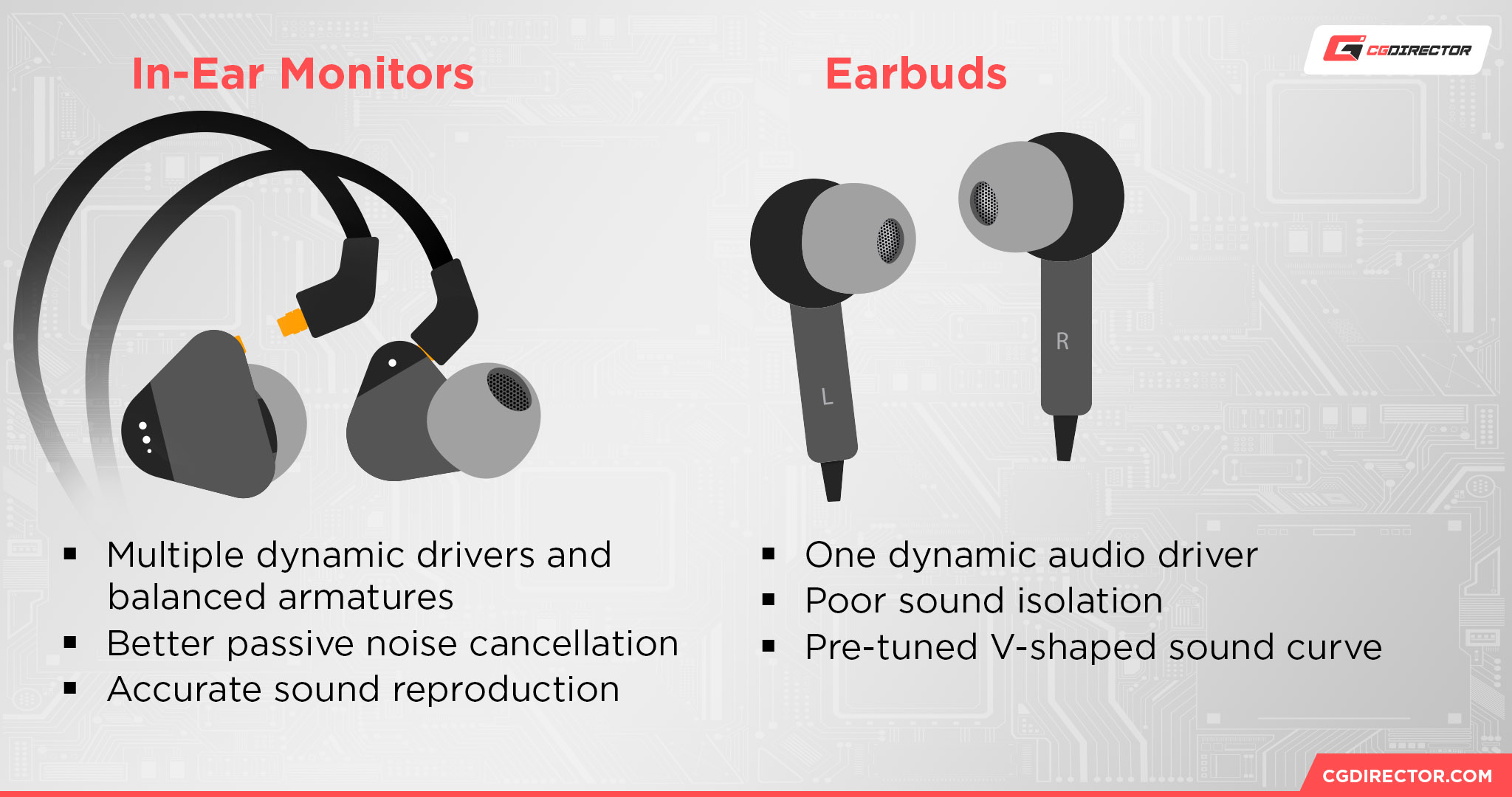

![IOR / Index of Refraction List For Common Materials [For Use In 3D Materials / Rendering] IOR / Index of Refraction List For Common Materials [For Use In 3D Materials / Rendering]](https://www.cgdirector.com/wp-content/uploads/media/2022/06/IORIndex-of-Refraction-List-for-Common-Materials-Twitter-594x335.jpg)

![Is PNY a Good GPU Brand? [Updated] Is PNY a Good GPU Brand? [Updated]](https://www.cgdirector.com/wp-content/uploads/media/2023/12/Is-PNY-a-Good-GPU-Brand-Twitter-594x335.jpg)

0 Comments